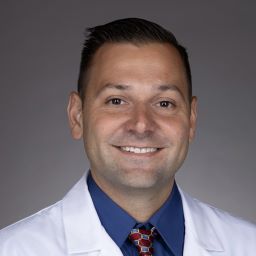
My life was forever changed when I went from a registered nurse with an undergraduate degree to a master's in nursing, and I will tell you why.
I was working as a registered nurse (RN) when I started looking into more in-depth education. Spending years on the same floor, doing the same jobs started to feel like a rut. Even more than that, I worried that the pressure of a stressful work environment would wear me down over time. First, I asked myself okay, why get a masters in nursing? (MSN) Will it really change anything significant?
I didn't want to enroll in a master's degree program until I had a good idea of what the advanced degree would bring to my nursing career. After that research, I took the leap and earned my MSN, and I can tell you that program has given me the best return on my investment in my whole nursing career.
If you are looking for some concrete details on why this nursing degree is worth pursuing, read on. Here's what I've learned.
1. A master's degree could mean higher salary potential
Your MSN degree will most likely be a reason to ask for a raise. Nothing is guaranteed of course, but in my own career experience, the MSN made a huge difference in what I could earn.
Another great thing for your wallet is a lot of MSN programs allow you to continue working full-time as a registered nurse while you're studying for your MSN degree online or in person.
It's definitely extra work to balance both of those commitments at once. But since many MSN students are in the same boat, lots of programs are designed to accommodate a working nurse's schedule. This amounts to no lost income as you pursue your degree.
2. It opens the door to less back-breaking work
Some of my earliest memories as a new RN were of the other nurses telling me about their aching backs and knees from years of hard work on the nursing floor.
In nursing, as we become more educated and specialized, we are afforded more job opportunities and advanced positions that rely more on specialized skills and less on physical labor.
Standing on your feet for 12- to 14-hour shifts is hard on your body over time. And that's not even to mention the toll stress can take on your physical and mental health.
Education leading to more intellectual work and less physical work is true for nursing careers, but also for most industries as well. For example, someone just starting their construction career compared to a general contractor; one role is a lot more physically demanding than the other.
3. You'll gain more control of your schedule
One of the most challenging aspects of nursing is the schedule. If you are working as an RN in a hospital or a long-term care facility, your days are sometimes nights, and your weekends are sometimes non-existent.
Holidays? Schedule your family plans after you get your working schedule.
Some MSN careers will allow you a better schedule that can consist of no weekends, 8-9 hour workdays and holidays off. To each their own, but I really liked having holidays and weekends off. It was a better arrangement for my family.
For example, when I worked as a family nurse practitioner at a primary care clinic, I had the option of working Monday through Friday 8-hour days or Monday through Thursday 10-hour days. I had weekends and holidays off with plenty of PTO.
I later worked at an urgent care and had the opportunity to work three 12-hour shifts a week, with the rest of the week off. A friend of mine got her MSN degree to become a nurse educator and works Monday through Friday, teaching for a nursing program at a graduate school. She no longer dreads having to work a “forced” weekend shift on the floor and missing birthdays and holidays.
Work hours and schedules are set by employers of course, so be sure to ask about these elements of the job before you apply.
4. You can teach!
Speaking of nurse educators--every nursing school needs them. But a nurse educator position requires, a minimum of a master's in nursing. When I earned my master's in nursing, I started teaching adult students and worked as a clinical preceptor.
This is another income stream, as training a nursing student does come with extra pay in most situations. And if you don't want to teach in the clinical setting, you can teach in the classroom.
If you've never considered teaching work, check out Would I Be a Good Nurse Educator? 7 Qualities You’ll Need to Succeed to see if you might be suited for it.
My current role gives me the best of both worlds. I teach a simulation lab class at Rasmussen University on weekends. The simulation lab program is a great mixture of both clinical and academic work.
Money is one motivator, but another reason I took students was to pay it forward. I wanted to give back to nursing, since it has given so much to me. Let's be honest, most of us are in this profession in the first place because we want to help people. Training the next generation of nurses is a satisfying way to make an impact.
Plus, educating students in the clinical arena qualifies you for continuing education credits towards your state license and national certification in my home state of Florida. It's a bit of a win-win-win.
Continuing education requirements do vary by state, so check with your state’s board of nursing to find out what qualifies.
5. You might find employers who will help pay your MSN tuition
You've probably already heard of hospitals and healthcare systems that incentivize their nurses to earn a BSN degree by offering to help pay the tuition. This is becoming more common at the Master's degree level as well!
A lot of hospitals will pay a part of the tuition for certain MSN programs, as long as you stay with them for a certain amount of time after your complete your MSN degree. Many places are experiencing a shortage of advanced practice registered nurses (APRNs), and offering to help fund their tuition is one way they try to attract and retain highly-educated nurses.
6. There are scholarship and funding options
If you don't have an employer who will help pay your MSN tuition, you may still have cost-effective options. For example, HRSA (Health Resources and Services Administration) is a federal agency that provides scholarships and loan repayment programs. Usually, these loan repayment programs require you to work in an area of need, and with the current shortage, these areas are vast.
7. You can earn an MSN online
Accessibility for master's in nursing programs is at an all-time high. Many nursing schools offer online programs. This saves you the potential commuting time and allows you to work around your schedule a bit more.
In my program, we used a hybrid schedule. I was able to complete some course work and didactics online and went to in-person class one time a week. Then, of course, we completed our clinical hours in-person.
Again, this allows you to continue working part-time or full-time as a registered nurse, while completing your education.
Rasmussen University’s Master of Science in Nursing—Nurse Practitioner degree programs are offered online with practicum experiences in your own community. These programs and their specializations are not available to residents of all states. Please speak with an admissions advisor to determine your eligibility for enrollment.
8. Nurse practitioners have so many workplace options
If you take the nurse practitioner route of the MSN, you can choose your credentials based on where you want to work and who you want to work with.
If you want to get out of the hospital environment, you could aim your career at a clinic and become a primary health care provider. This is why one of the most popular master's degrees in nursing is the FNP, specializing as a family nurse practitioner.
This MSN degree allowed me to wear a white coat with the credentials MSN, APRN- BC. That means that I held a master's degree in the science of nursing, and I was a board-certified advanced practice registered nurse.
My patients listed me as their primary care provider, and I worked alongside different types of primary care providers, such as family doctors, internal medicine doctors and other healthcare professionals.
In this role, I provided primary care needs. I was writing my patient's prescriptions for their chronic and acute illnesses, ordering diagnostic exams, and scheduling follow-ups, and referrals.
You could also specialize in mental health and become a PMHNP (psychiatric mental health nurse practitioner). Or you could specialize to work with children or infants or the elderly--there are plenty of options. For a look at them, check out Nurse Practitioner Specializations: A Newcomer’s Guide.
A clinical nurse specialist is a type of MSN-trained nurse who works in a more supervisory role, which can be an appealing career choice for RNs who like their current workplace but want to advance into higher roles.
MSN nurses who don't choose the NP route can also go into nursing leadership and administration, public health and policy making, and even work as a consultant for non-healthcare organizations like insurance companies, corporations and law firms.
9. Help solve the current shortage
We have all heard about the nursing shortage, and this also extends to master's level nurses. By becoming an MSN nurse, you can help solve the shortage by becoming a family nurse practitioner, certified nurse midwife, nurse anesthetist, a nurse administrator or adult/geriatric nurse practitioner.
There is a dire need for nursing educators as well, and with an MSN, you can fill this gap as well.
As a family nurse practitioner and a resident physician in psychiatry, I can attest to the fact that we have an urgent need for mental health providers. Psychiatric advanced practice registered nurses can help fill these voids. A large swath of the US does not have adequate primary and mental health care coverage.
10. Travel with more options
You can say MSN means career opportunities.
With your MSN degree and acquired nursing skills, you are considered a highly specialized and sought-after nurse with unique leadership skills. You are in high demand with many companies and healthcare facilities around the US.
If you want to take a travel assignment to Alaska and work alone or with other certified nurse midwives for six to twelve weeks, there are contracts for that. If you are ready for some sunshine, you can then head to Hawaii to thaw out and pick up an eight-week assignment.
Not only do these travel assignments pay you more than your local jobs, but many also cover your travel and lodging expenses. If you're somebody who wants to get out and try new places, getting into advanced practice will broaden your options.
11. Reinvigorate instead of burning out
Sometimes getting out of a stressful work environment and into a new, calmer, one can exhilarate one's passion for life and the nursing field. Nursing burnout is a real problem, and when you are burning out, you can't imagine taking on new responsibilities or diving into a whole new thing. But then, the problem only grows worse. If nursing has started to feel heavy or monotonous, you might want to make a change.
Nursing is demanding—but for many, the hardest part is the beginning, getting yourself through nursing school and earning your RN license. If you've already done that, you might be surprised at how well you adapt to an MSN program.
If you are looking into direct entry msn programs, (where you complete requirements to become an RN and earn an MSN in one go) you are definitely in for a learning curve. But the upside will be the chance to walk right into these benefits that take many nurses a longer time to enjoy.
12. You will meet the best people
By the time you hit the graduate level, you are likely to interact with nurses who excited about expanding their potential and deeply passionate about patient care, public health, nursing policy and administration and more.
One of the best things about education is the way it expands your circles and networks. I've made lifelong friends and met some of the best people I know while attending my MSN program. And that trend only continued in my career as a nurse practitioner.
What could a master's degree in nursing mean for your life?
If you feel you have the ability and energy to further your education in the nursing field, I recommend you make the jump from your bachelor's degree and go for the MSN degree. Think it over, research and imagine what opportunities an MSN degree might open for you.
What would you specialize in? What aspects of nursing do you love most or want to do more of? What would you change about your career as it is now?
When all of these benefits stack up, you can really see how an MSN can offer a better quality of life for yourself and your loved ones.
At the end of the day, we all work so we can create a life that we are proud of. An MSN degree can help you achieve your dreams inside and outside of nursing. Go for it! Maybe I'll get to see you in the nursing simulation lab.
Get more details on program start dates, tuition costs, specialization options, schedule and more at Rasmussen's Master of Science in Nursing - Nurse Practitioner page.




